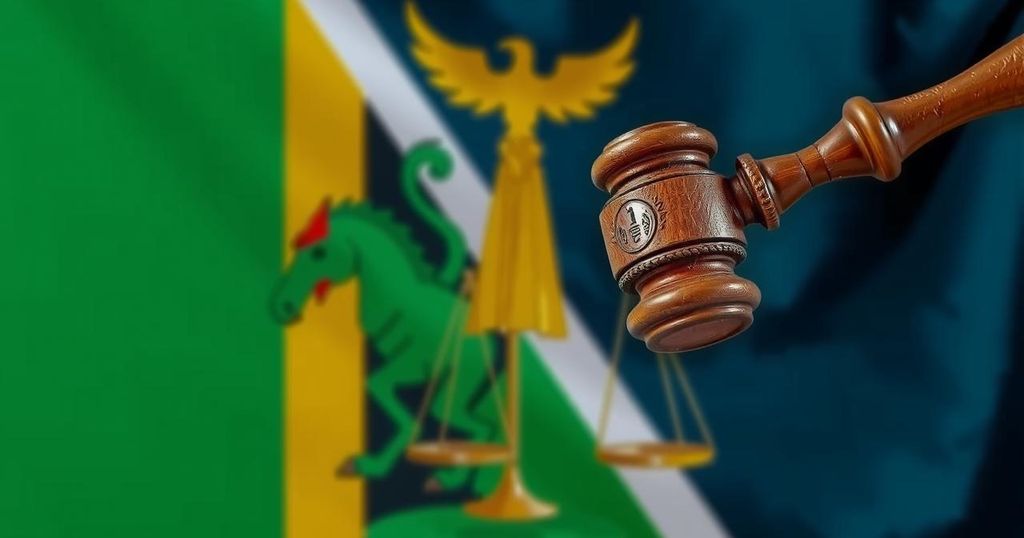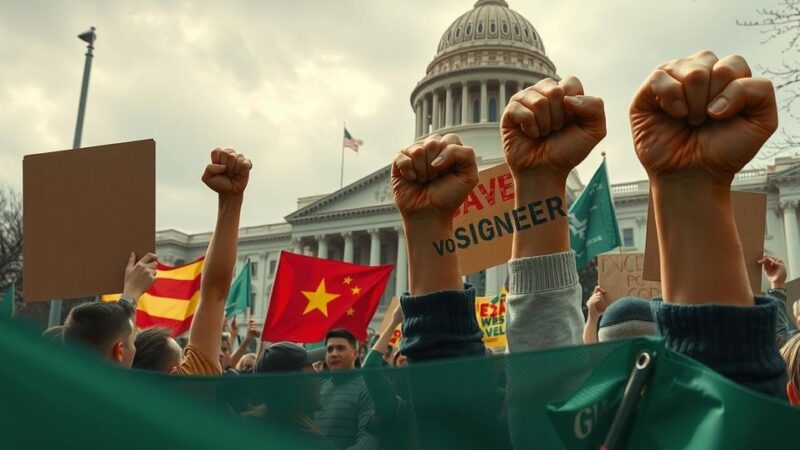The Namibian government has appealed a ruling that invalidated its apartheid-era sodomy laws, claiming the laws are unconstitutional. Advocacy leaders argue the appeal seeks to gain favor with conservative constituents while opposing LGBTQ+ rights. The outcome of this appeal at the Supreme Court will impact the status of LGBTQ+ rights in Namibia.
The Namibian government has officially appealed a recent High Court ruling that deemed the nation’s sodomy laws unconstitutional, remnants of the apartheid regime. Justice Minister Yvonne Dausab, Prosecutor General Martha Imalwa, and Attorney General Festus Mbandeka, among others, filed this appeal with the Namibian Supreme Court on July 20. Omar van Reene, the founder of the Namibia Equal Rights Movement, expressed that this appeal serves dual purposes: catering to the government’s conservative base while showcasing their purported opposition to homosexuality. Van Reene asserted confidence in the eventual success of the appeal, predicting that it would further solidify constitutional rights related to LGBTQ+ matters.
The recent ruling by the Namibian High Court is part of a broader movement in Africa where several countries, such as Botswana and Angola, have decriminalized consensual same-sex relationships. Namibia’s historical context is critical, as its sodomy laws are a carryover from the apartheid era. This legal backdrop has fueled ongoing advocacy for LGBTQ+ rights, underscoring the tension between progressive legal rulings and traditional societal values. The Namibian Supreme Court’s previous acknowledgment of same-sex marriages conducted elsewhere highlights this conflict, as it invites significant political backlash from conservative factions.
The appeal by the Namibian government against the High Court’s ruling on sodomy laws highlights a contentious intersection of legal rights, societal attitudes, and political maneuvering. As neighboring countries move towards decriminalizing and recognizing LGBTQ+ rights, Namibia’s legal discourse remains fraught with challenges. Advocacy groups maintain a vigilant stance, expressing hope for eventual justice and recognition of human rights within the framework of the Namibian Constitution. The outcome at the Supreme Court may well influence the trajectory of LGBTQ+ rights in Namibia and potentially inspire broader changes across Africa.
Original Source: www.washingtonblade.com






